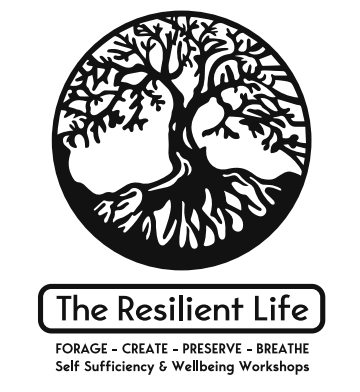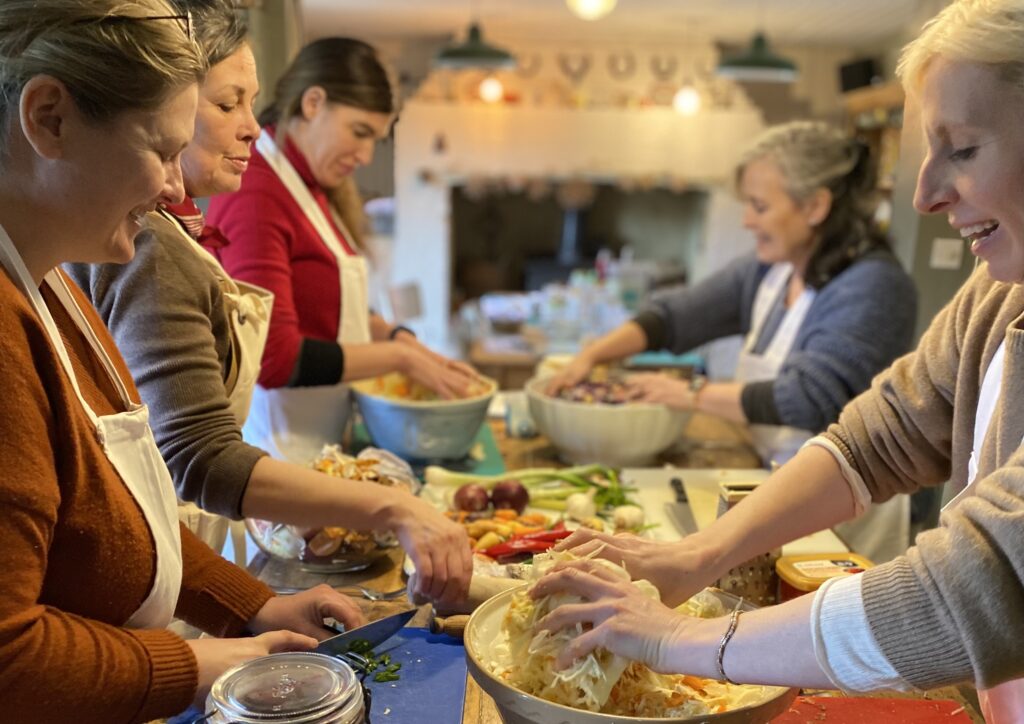Pickling, Preserving & Fermenting
“The revelation to produce and store food may be as essential to our temporal welfare today as boarding the ark was to the people in the days of Noah.”
– Ezra Taft Benson
Workshop Details
Time – 4 hours > Lunch Inc – Yes > Location – East Sussex
Learn how to choose and prepare ingredients before making your own jar of fermented food to take home with you.
You will learn about other ways to ferment, pickle and preserve foods for the pantry.
Learn how to process your produce and store correctly.
All ingredients included.
Workshop will include a homemade lunch including freshly baked sourdough and selection of fermented preserves to sample.
£48
Per Person
Fermented Foods
Fermented foods are not just another way of storing and preserving produce. More and more studies are showing the incredible health benefits of eating fermented food. For a start fermented foods can greatly improve your overall health as they are packed with numerous components including Vit B complex, probiotics and dietary fibre.
Ferments are a great way of obtaining nutrients as they are brimming with good bacteria that will support your digestive system. Many cultures all over the world have a long understanding that eating certain ferments will aid digestion and generate important enzymes that help absorb nutrients. E.g. when cabbage and cucumbers are combined, the fermentation process deconstructs the sugar content in the vegetable, promoting the correct bacterial growth to support good gut health.
– Pickling & Preserving Foods –
The home cook’s secret weapon is preserving. If you have a vegetable patch, allotment, or fruit trees, it’s a traditional way of making the autumn harvest and summer produce last through the winter; a way of storing our food without using any chemicals or a freezer. It’s a wonderful, ethical, colourful, and tasty way of filling your pantry or larder.
The idea of making your own chutney, jam or kimchi might feel a bit scary but with a little time and patience it’s a very sustainable and resilient approach to preserving food.
– What to preserve –
If you’re not using your own produce, check what’s in season and go for foods you like the taste of. You don’t need to spend a fortune either, you can use your recycled jars and bottles and swap and share fruit and veg with your friends, family, and community. Our neighbours leave out a box of spare apples on their doorstep every autumn and in turn we give them a jar or two of chutney, apple wine or cider vinegar. Some traditional preserves include chutney, Jam, Jelly, and pickles. You can pickle just about anything from carrots to eggs, fish, meat, fruit, and fungi.
What is Fermentation?
Firstly, there are two different types: alcoholic and lactic acid fermentation. Both processes are achieved by applying microorganisms such as bacteria or yeast which help to convert carbohydrates to alcohol or organic acids to anaerobic conditions.
See our wild-wine section for more information on alcoholic fermentation.
Some of the health benefits include:
Boosting the Immune system
Maintaining a healthy intestine
Strengthening bones,
Supporting weight loss
Excellent source of fibre
Increases body energy
Maintains cholesterol levels
Good food source for diabetics
Good for skin and hair
– Fermented Foods –
So many cultures have used fermented foods in their daily cuisines for centuries.
Some of which include:
Sauerkraut
Kimchi
Kombucha
Miso
Natto
Kefir
Buttermilk
Raw yogurt
Pickles
Kvass
Tempeh
Vinegar
Raw Cheese

